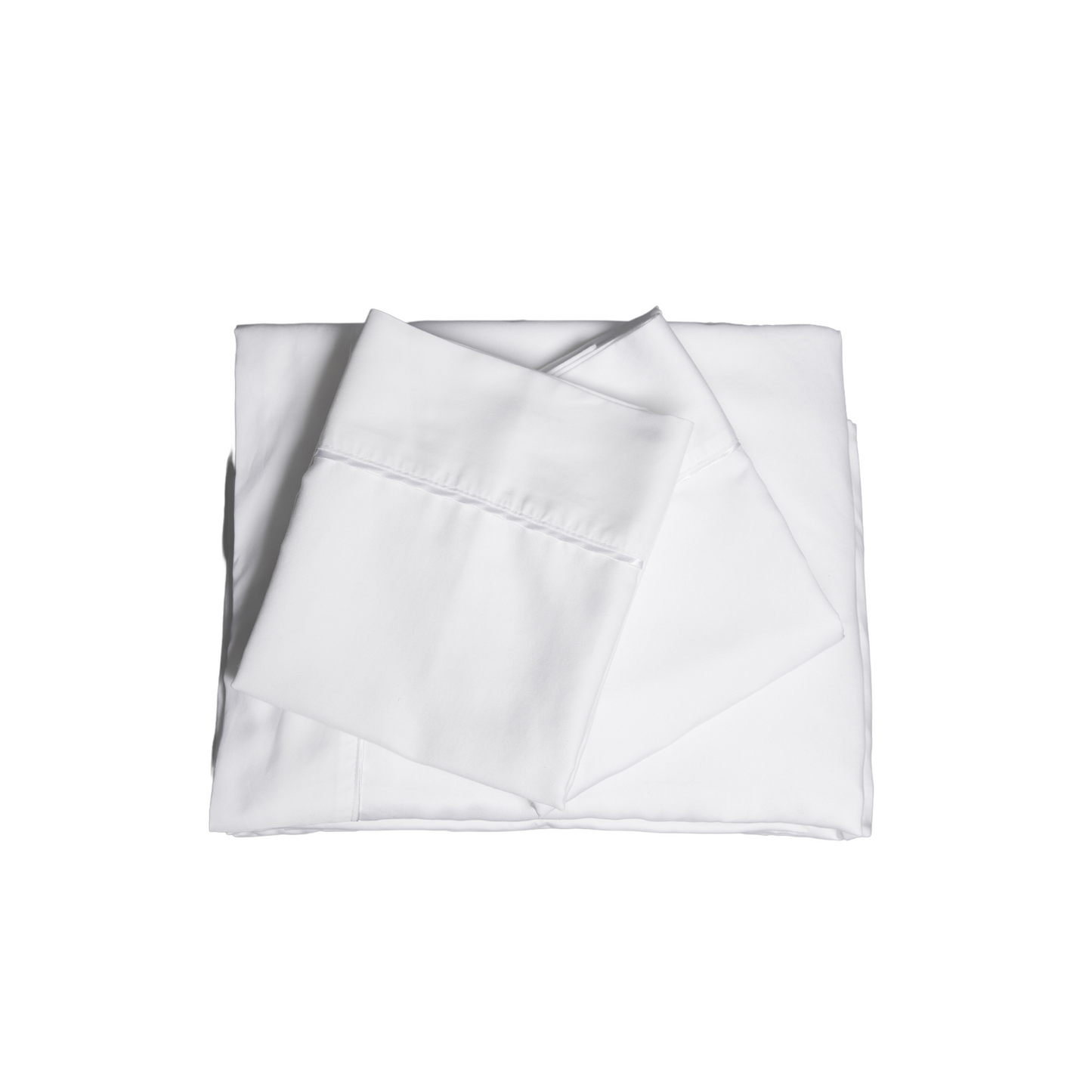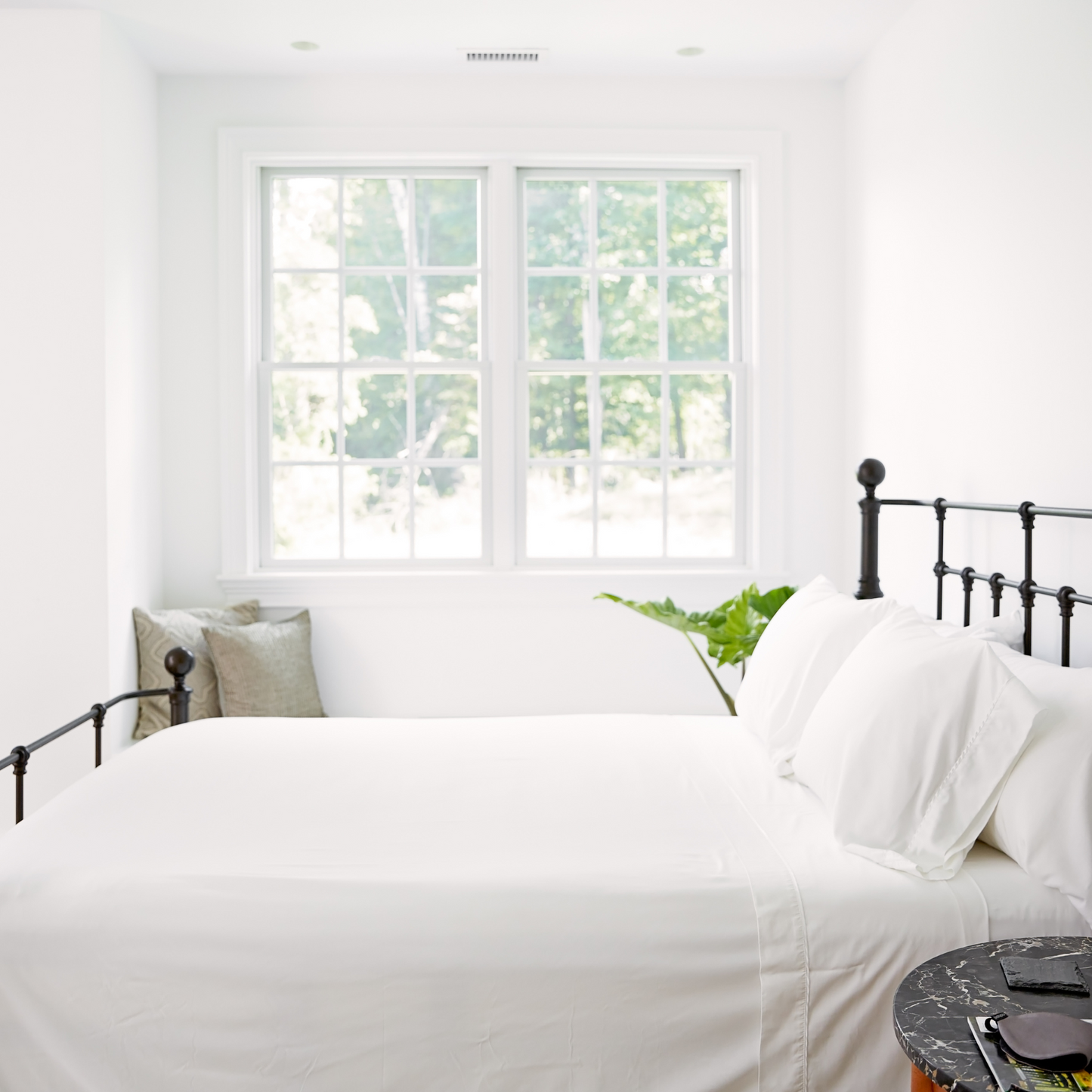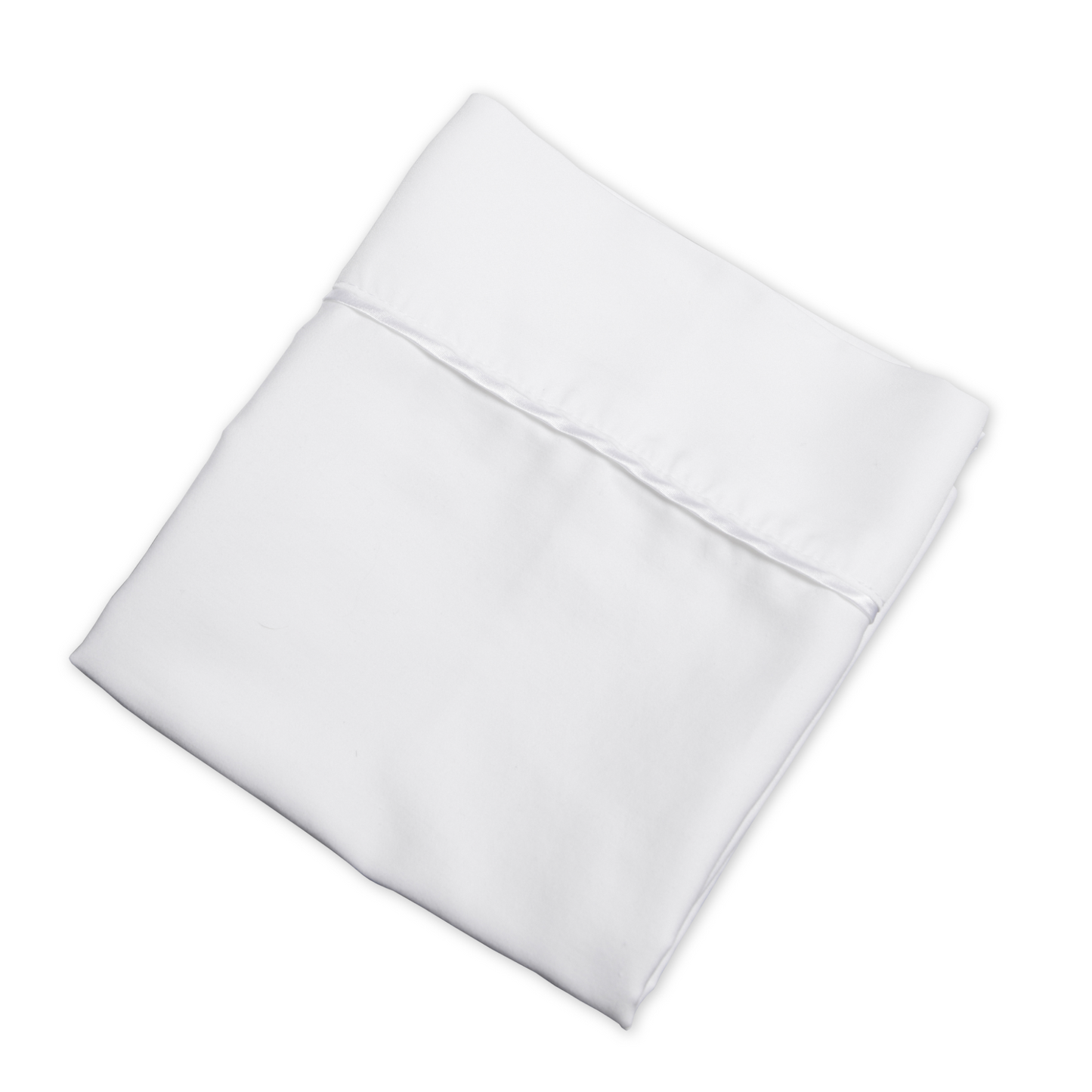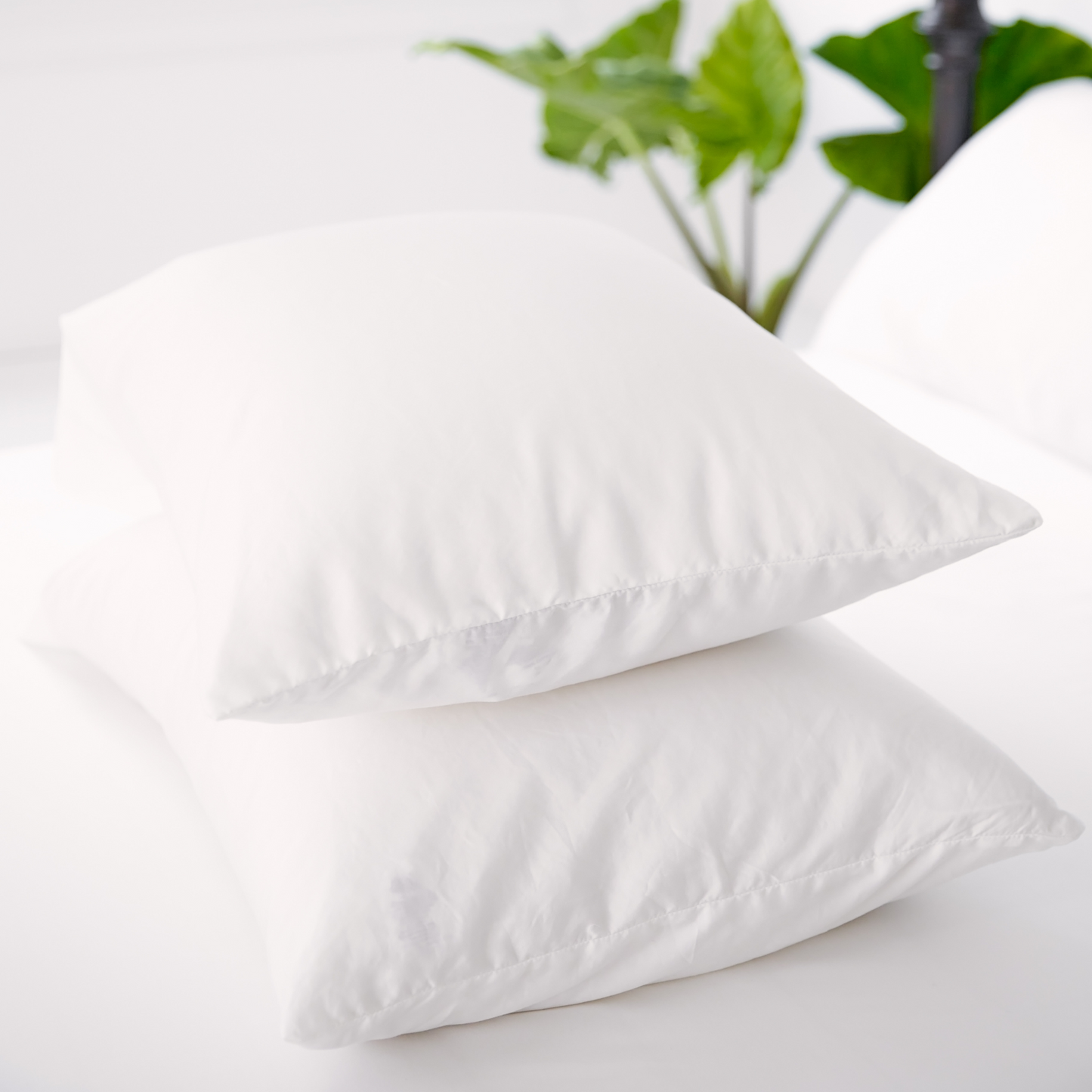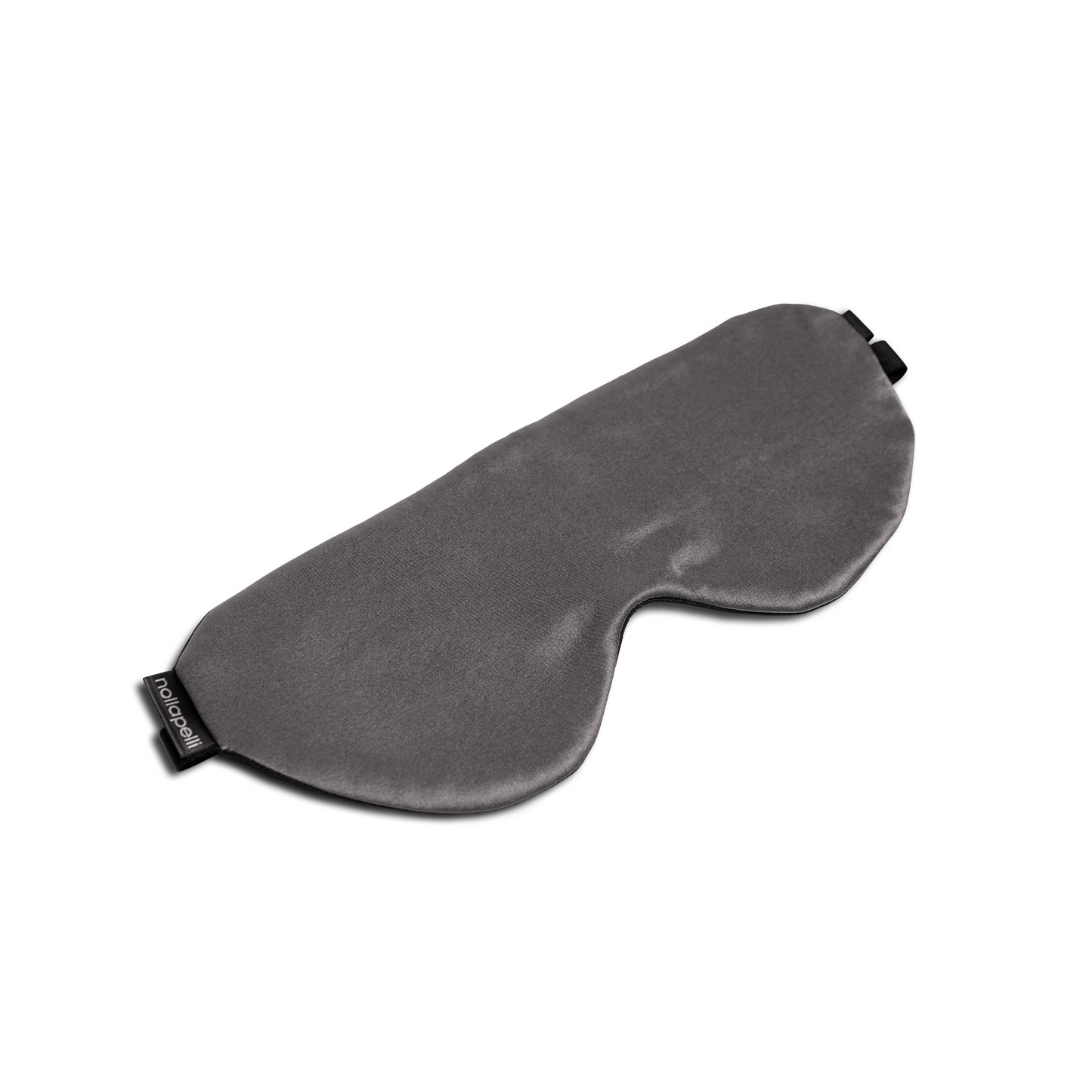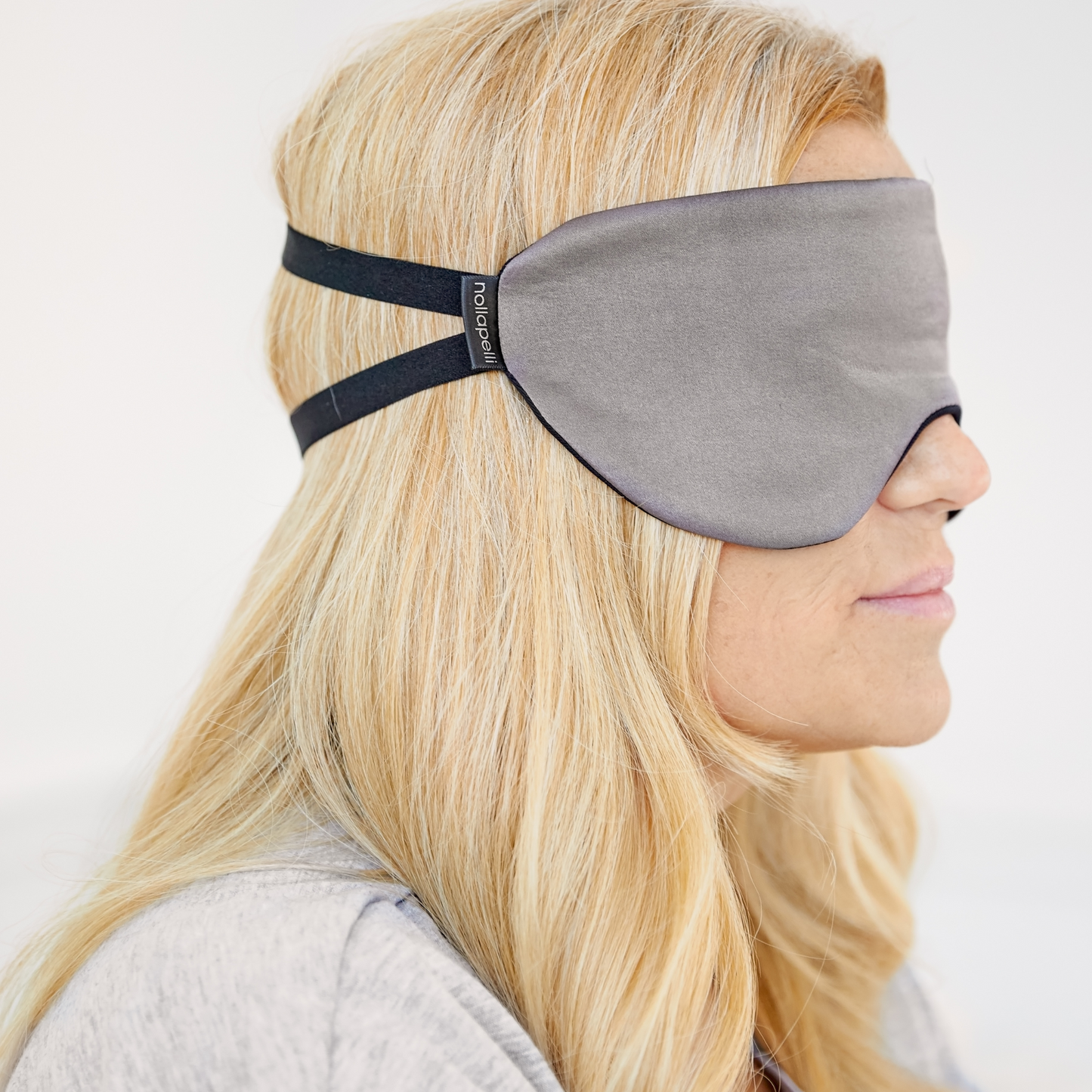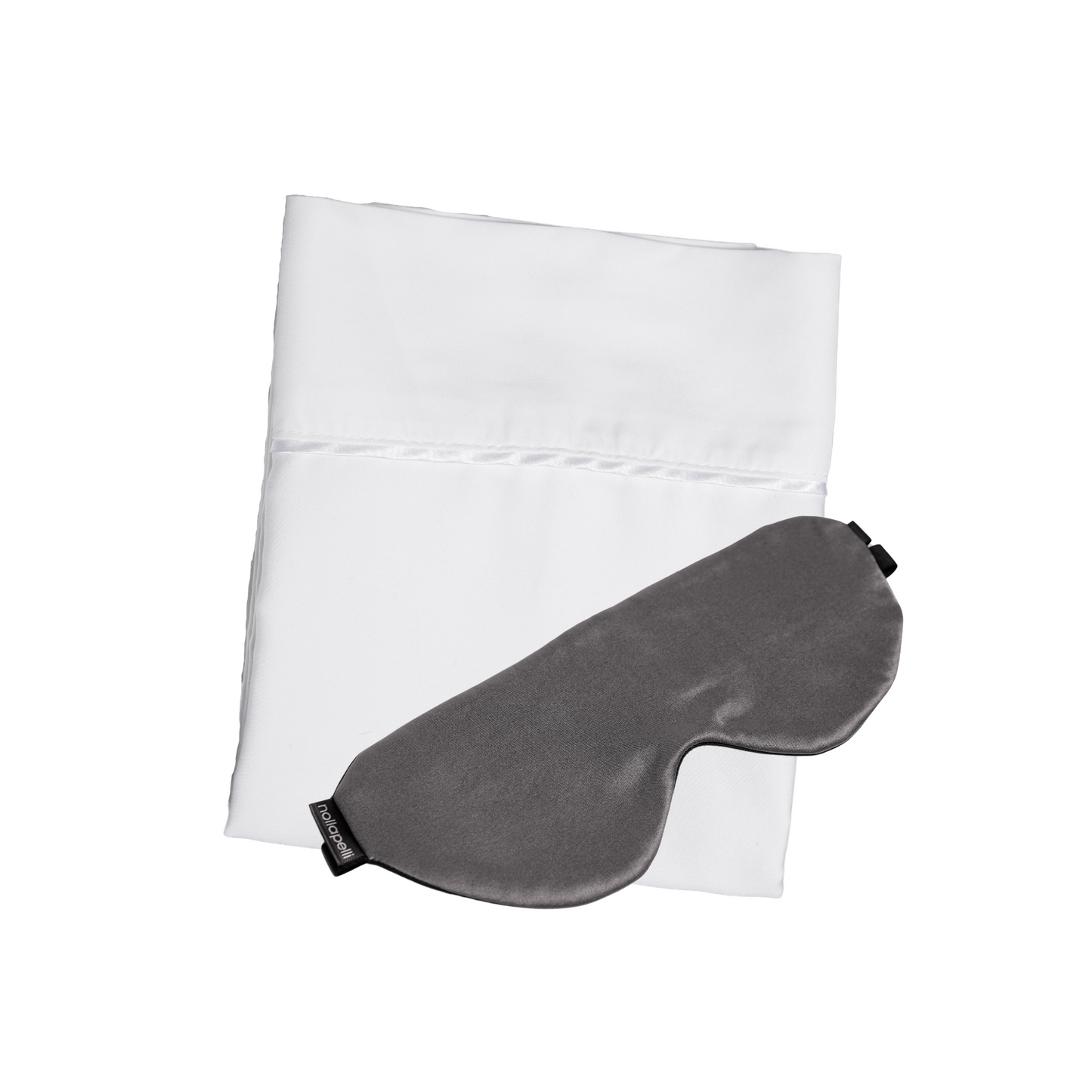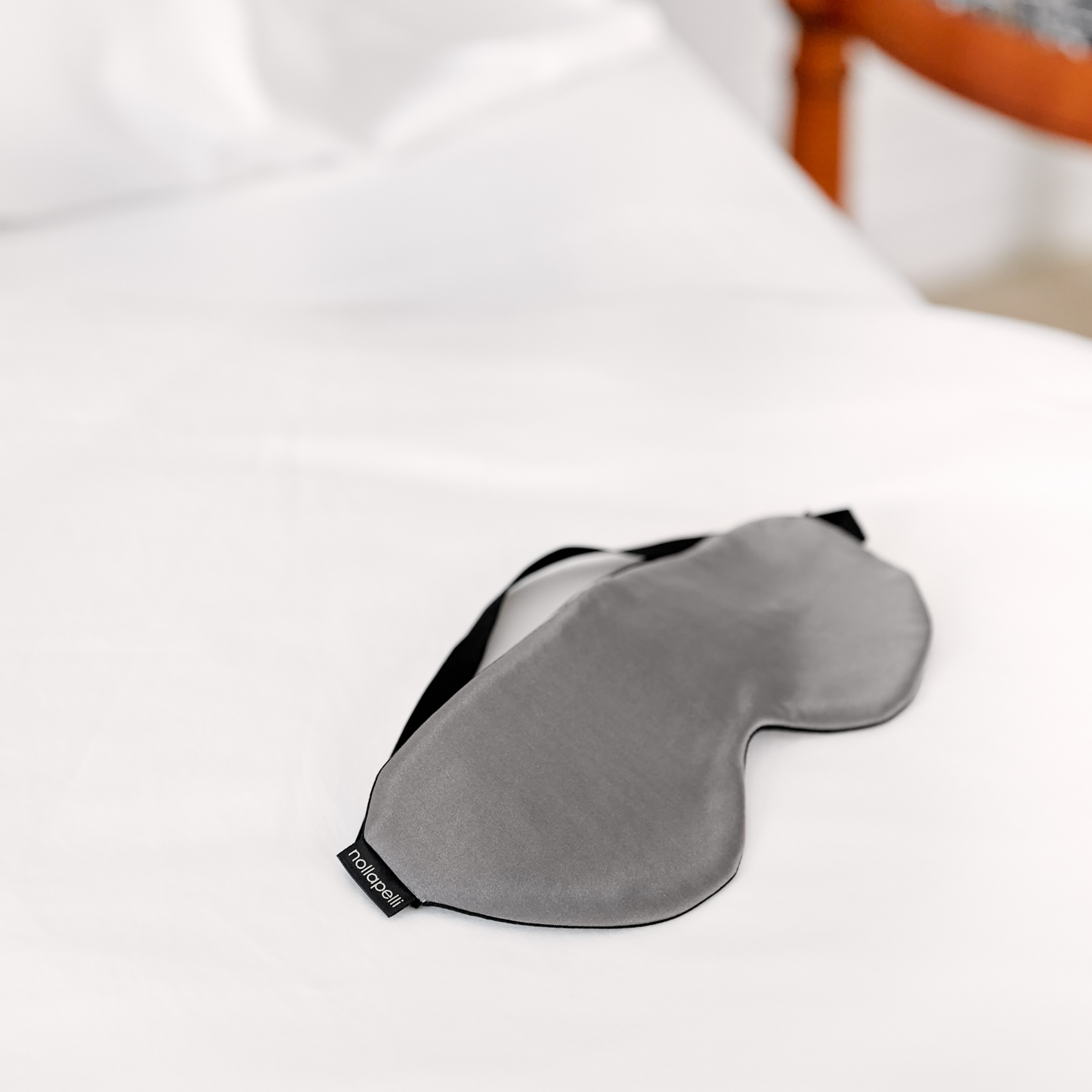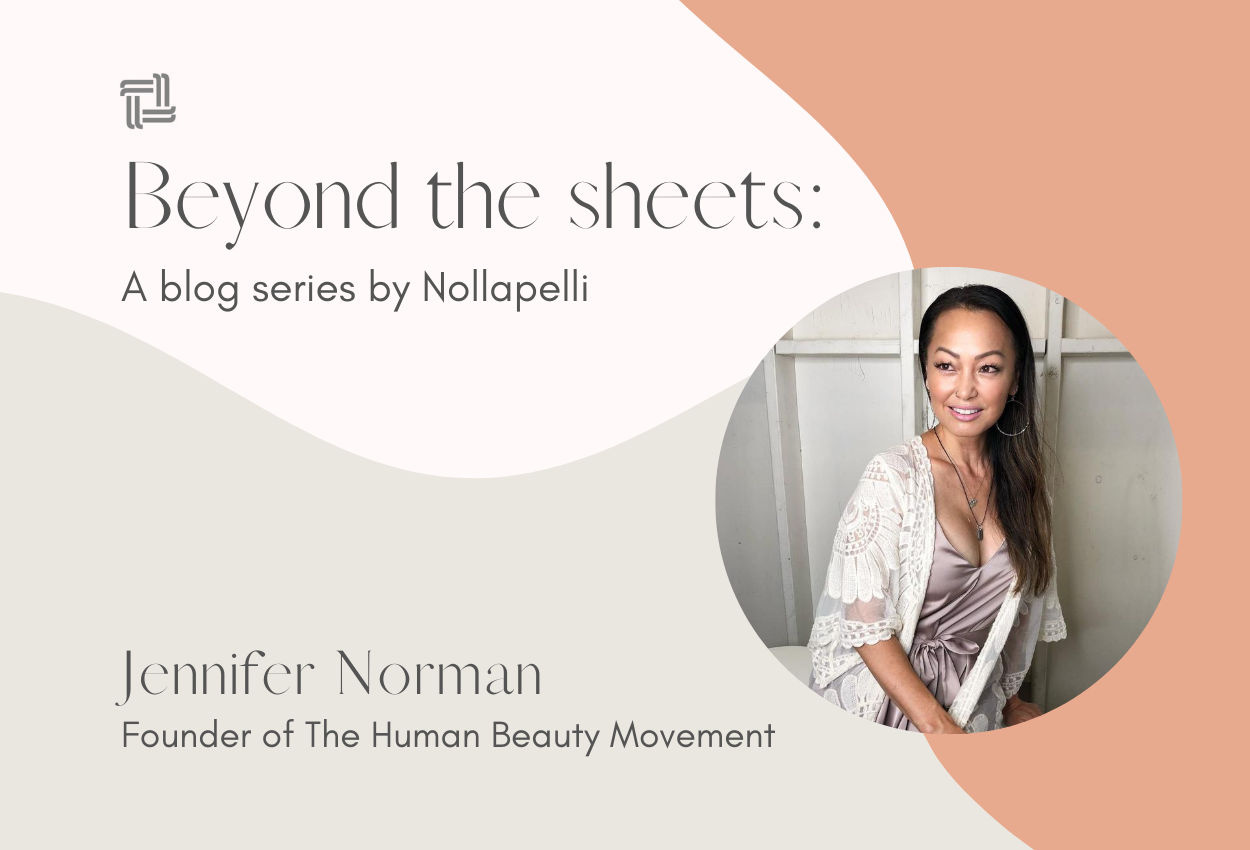
Jennifer Norman, founder of The Human Beauty Movement, Knows You Are Beautiful
We are shaking things up a bit with this month’s Beyond the Sheets. Jennifer Norman, Founder of The Human Beauty Movement and Humanist Beauty, is too great of a force in wellness not to be seen and heard. With 20+ years of leadership and marketing experience in the beauty and wellness industry including stints with The Honest Co. and Derma-E, Jennifer believes it is time for a profound change in beauty and wellness.
We video chatted and dove into the purpose of The Human Beauty Movement and how radical inclusion is at it’s soul. I learn about Ikigai and how this Japanese perspective is propelling Jennifer and her innovations. And, of course, we talk about sleep; Jennifer gives a fresh and interesting answer to how she treats her sleep each day.
I invite you to listen and see our talk - it is worth your time. Full interview below in both video and transcription.
Written Transcript:
Jessa (Nollapelli): What was the catalyst to The Human Beauty Movement? What made you start this company? I should call it a movement more than a company.
Jennifer (HBM): Yes, I’m so glad that you pointed that out. My hope for founding The Human Beauty Movement was to make it a non-corporate type of entity. I feel like the old organizational model of the way corporations were set up and run in the past is really archan, it’s really a dinosaur. There were so many reasons organizations would set themselves up in these hierarchical, bureaucratic manners. It’s all about efficiency, but frankly it’s all about power too.
As I sat back, I looked at what could be right aligned with the way that commerce is done, the way the economy could be done - it needs to be handled a little bit differently. For me, it’s more of a movement, more of a progression rather than the establishment of this corporate entity. It’s the understanding that we are here to serve each other, we are here to serve stakeholders and it's not just about shareholders, it’s not just about money, it’s not just about the bottom line. Unfortunately, in a lot of organizations, that really is the intention behind setting up the company, the brand, the product or the service - what can we do to make more money, what can we do to beat the other guy.
I felt it was more important for us to think holistically, more helpfully, more about wellness frankly for people on the planet.
I felt it was more important for us to think holistically, more helpfully, more about wellness frankly for people on the planet. So, from my background, which had been predominantly in the beauty industry for the past 20 years, I felt there was a real significant need for us to take a look at the impact of what the beauty industry had done on particularly women, but of course this also branches out to men, about their emotional wellness, physical wellness, psychological wellness and how it really made them feel about themselves, what the messages really were doing. More and more, I see that there is almost like this forked-tongue communication - we want to empower you, we want you to build self-esteem, but you’re really nothing if you don’t buy our product. You’re really not cool if you don’t have the latest fashion or the latest shades. This is definitely this manipulation, this luring of women and men, to feeling like I’m going to be a better person, I’m going to feel more self-esteem and self-empowerment if I look the part, if I change the way that I am, if I act like somebody else, if I look like somebody else. And, that’s not really healthy is it? It’s a lot of acting, it’s a lot of hard work to try to live up to somebody else’s expectations.
I really want to disrupt the beauty industry by saying that you are already beautiful the way that you are -
who you are, how you are, how you show up in the world. You are beauty.
The Human Beauty Movement is all about changing the narrative. It is a disruptor. I really want to disrupt the beauty industry by saying that you are already beautiful the way that you are - who you are, how you are, how you show up in the world. You are beauty. You do not need anything else external to make you more beautiful, you are beautiful. Everything that any company can offer, any person can offer to help shapeshift your avatar, as I like to call, is there for enjoyment. It’s for fun. It adds a little excitement and joy to life; it’s not to make you feel you are nothing without it.
Jessa: Right, it’s changing that mindset of what beauty and wellness have turned into. With this movement you are creating, is it being well received by the wellness industry? It’s not the typical norm of a corporation, you were recently honored a Certified B-Corporation, which congrats on that, but are you finding any kind of resistance from the old guard?
Jennifer: Interestingly enough I don’t really pay attention to the old guard. [laugher]
Jessa: Good for you! [laugher]
Jennifer: It serves me well. I will say I have those little voices that do sit on my shoulder, the little angel and the little devil, and sometimes I do think in the back of my head, wow, I’m sure some of the other people I’ve worked within the past may have had a different philosophy on things, or may have had more of the old guard, masculine rather than the divine masculine, the divine feminine, which we know is emerging now. And, yeah, they [old guard] would have certain opinions on it and it’s exactly what I want to do in terms of the opposite. I have more momentum on my side in terms of people waking up to the need for conscious, kind capitalism.
I have more momentum on my side in terms of people waking up to the need for conscious, kind capitalism.
I’m finding that it's so important to think about the impact, not only the environmental impact, but more and more, and especially this year, it’s about health impact, wellness impact and social impact. Timing couldn’t be better.
Jessa: That leads into my next question with the way we are right now - with COVID-19 and Black Lives Matter - why is the message of The Human Beauty Movement important right now?
Jennifer: I feel that this has been a year that has thrown everybody up in the air and shaken everybody out.
Jessa: What a great metaphor.
Jennifer: Yeah, everyone is in limbo and the lesson of this year is how can we get comfortable with discomfort. There is so much unknown and therefore, there is a lot of fear, a lot of anxiety. There’s a whole heck of a lot of stress that people are feeling this year. If we think about Maslow’s Hierarchy [of Needs] and what we would consider the privileged, let’s call this American because we [Jessa and Jennifer] both are situated on the coasts here in America, but for middle class, upper-middle class, we were at a certain level and then all of the sudden everyone is completely brought down to the lowest level of Maslow’s Hierarchy, and wondering about the essentials of survival. Is my family going to be healthy, am I going to have enough money to make it through this week let alone this month or this year. There’s so much stress, so much anxiety and so much tension bubbling up from things becoming atypical and not being the “normal” way of doing things in the past. We are all the sudden having to shift and finding new ways of existing and surviving.
The message of The Human Beauty Movement coming out at this time is a sense of security from an internal perspective. Before COVID-19 and Black Lives Matter, I found The Human Beauty Movement in March of 2019 with the mission to be about radical inclusion and wellness. And, what are we living in now? It’s a time when we need radical inclusion and wellness.
Jessa: You had a premonition, my friend.
Jennifer: Seeing what’s happening with social injustice and the way that’s interlinked to the ability to have wellness, because unfortunately, the Black community is getting hit by COVID-19 in much greater numbers and at higher percentages than privileged and white communities, and there is so much racial tension that what we, what I would like to do, at a grassroots level and through wonderful blogs such as Beyond the Sheets, and any way I can, I want to get the message out that it’s okay not to feel okay. It’s part of the human condition.
I want to get the message out that it’s okay not to feel okay.
The more that we can cooperate and learn, not only tolerance but acceptance and love then the world would be in a better place.
There’s this wonderful human, his name is Mark Gaffney and he had this quote which really resonated with me, it was like “The world right now is in this extraordinary, outrageous amount of pain and the only response to outrageous pain is outrageous love.” We cannot have pain fighting pain. We can’t have this selfishness. We can’t have this hoarding mentality. And, if we do, it’s not going to be constructive to building a better future for anyone. Even in as dire a situation that any of us are in, what can I do to help someone else. That’s where beauty comes from. It’s in kindness, compassion and empathy. It’s in understanding that we are all in this human suit together.
Jessa: You speak so eloquently and you’ve seen the wellness industry evolve, but I want to pivot a bit because you do public speaking events, virtual events now, and one of the topics you have touched on is Ikigai. Talk to us a little bit about what that is and why it’s so special.
Jennifer: I am actually a newcomer to the concept of Ikigai, but once I found it, I found it so valuable and poignant to myself that I wanted to dive into it and really understand it and share that inspiration with others to best determine where their future might lie. The word “Ikigai” is a Japanese word. The origin is from the Okinawans. With people studying Okinawans and Okinawan culture, it was amazing to find that there were more centenarians (a person who has reached 100 years of age) than any other place on Earth. People seemed to be living these fulfilling, happy, abundant lives. “Iki” is “to live” or “reason” and “gai” is “your reason for being.” Ikigai is roughly translated into your life’s work. I look at this as being a practical way of navigating your way through how to align what you love and what you want to do in life with what you can do in terms of obtaining abundance, what your career is. Especially now, a lot of people are thinking, oh gosh, I used to be able to do this, my employment is now completely dissolved - I used to work in hospitality, a movie theater, in wellness at spa or gym and now I can’t. How am I going to make a living? It becomes very stressful.
Jessa: How are you applying Ikigai to yourself and your movement now?
Jennifer: There are four different sectors to Ikigai. The first is what do you love, the second is what are you good at, the third is what does the world need, the fourth is what can you get paid for. When you combine all of those into a Venn diagram and you get to the center, sweet spot, then that is the focal point of your Ikigai. In thinking about what I wanted The Human Beauty Movement to be and what it has evolved to, it’s been a reinforcement, a strengthening and a deepening of the intention of how this is going to play out moving forward. Before, I only thought about The Human Beauty Movement being in the beauty industry, and now I am thinking about more as beauty and beyond. The essence of beauty is not just in makeup or skincare or those traditional types of beauty products or services, beauty is in the essence of art, in the essence of music, it’s in the essence of the way that we communicate. There are so many aspects of beauty that are relevant in which this Movement can be impactful and have an influence.
The essence of beauty is not just in makeup or skincare or those traditional types of beauty products or services, beauty is in the essence of art, in the essence of music, it’s in the essence of the way that we communicate.
I do love art, music and beauty products, it’s fun! It's one of the reasons I stayed in the industry for 20 odd years. I enjoy it and frankly, I’ve gotten really good at it. Okay, so what does the world need? I think the world needs a wake-up call. That is where this purpose and this mission becomes so apparent about radical inclusion and wellness becoming part of beauty, and not just from a massage and self-care aspect, wellness from a true intrinsic, holistic, deeper intention that includes all of your being. Then, of course, what can you get paid for which is why I found this as a for-profit company. I want this to be able to change the economy and be an example of changing business for good.
Jessa: That’s amazing. I am hoping The Human Beauty Movement is more than a trend, but a lasting, continually evolving movement. Do you see other trends coming up with The Human Beauty Movement in the wellness and beauty industry?
Jennifer: From the idea of business entities, it’s refreshing to see more and more companies becoming purpose-driven, mission-driven, and wellness-driven. No matter what industry they are in, more and more companies are starting to think like wellness companies. They are starting to think about people and the planet over profits. Also, I hope that's not just a trend.
No matter what industry they are in, more and more companies are starting to think like wellness companies.
I’m seeing really exciting, cool brands. I love that there is this groundswell of activism that is really helping to make the world more well.
If I dig a little deeper and peel back the layers of wellness, there are really intriguing things happening in terms of sleep.
Jessa: We love the topic of sleep here!
Jennifer: For people like me who used to burn the candle at every end, sleep was something I thought was a waste of time.
Jessa: And a weakness in a sense.
Jennifer: Yes, like who needs to relax? I need to go go go. It’s this mindset of sleep not being necessary. Maybe that’s the New Yorker in me [laugher].
Jessa: The east coast mentality can really wear you down.
Jennifer: It’s one of the reasons I lasted three years in New York City, and then I needed a healthier lifestyle. I need to be able to focus on my own self-sanity and survival. I made the trek out west and never looked back. Now, I relish my sleep. I understand circadian rhythms, sleep cycles and brain waves and how important it is for your mind, for your body to regenerate to sustain itself. Otherwise a whole host of physical manifestations will occur. And, boy your sheets are important!
Jessa: When I switched to Nollapelli sheets, my husband said, “those are a game changer!”
Jennifer: The right mattress, the right sheets, the right temperature, the right ambiance, ya know different apps that are now coming out to help to calm and provide that essence of meditation, that calm, that serenity - it’s all really amazing. These are advances and innovations that are working for good, which I admire tremendously.
Another thing that I find almost amusing is that all of the sudden there is a groundswell over plant medicine, which has been around since the beginning of time. They [plants] probably look at us and laugh because we are so fragile. So much intelligence in plants. And, there’s been this epiphany over CBD, cannabinoids, fungi and mushrooms, things that have been around for the longest time but have been considered pseudoscience. And the only reason they are considered pseudoscience is because there hasn’t been the dedication and the time clinically to studying these things. Now it’s finally happening and they are recognizing, wow, this is really good stuff to help people’s wellness.
Jessa: Yes, we don’t always have to create something. It might already be there.
Jennifer: Exactly. That’s why I refer back a lot to ancient wisdom in what I’m doing and putting together The Humanist Beauty products. The first products are 100% plant-based. It’s really about harnessing ancient wisdom for modern times.
Jessa: Okay, last question.. What is one thing you do for your sleep everyday?
Jennifer: I am one of those people that has a hard time falling asleep. Sometimes I lay there and my mind will be racing, so I’ve started to listen to binaural beats. It has been really helpful for me in terms of getting my brain into the right waves for falling asleep and having more restful sleep throughout the night.
Be sure to follow The Human Beauty Movement on Instagram, LinkedIn, Twitter or Facebook to witness how Jennifer and her movement evolve and to learn more about Beauty for Humankind™ .

